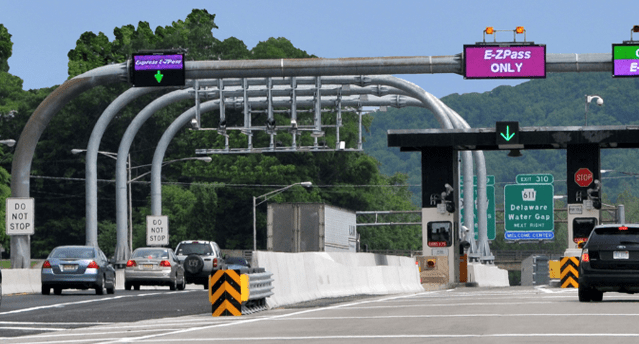
Is EZ-Pass really so easy?
You’ve seen the infomercials. Buy “mighty putty,” the “GLH Hair System” or the “thigh master” for just 15 or more “easy” payments of $9.99. It is so easy separating the consumer from his money.
Toll booth authorities, no doubt taking a cue from Saturday morning TV, created the EZ-pass system, a revolutionary system that takes the fear out of approaching toll booths and the worry of not having sufficient money to get past the gate.
The EZ-pass box on your windshield makes paying tolls “EZ” and helps us forget how expensive it is crossing a bridge or travelling down a toll road.
Texas Challenge
Drivers in Texas who were hit with exorbitant fees for failing to pay tolls challenged the system in federal court. The plaintiffs failed to pay the tolls but their license plates were captured by the toll booth cameras.
The Texas system was different than what we see in Pennsylvania. In an effort to avoid traffic congestion, all toll booths were removed and there was no option to pay an attendant even if you didn’t have a “TollTag,” the Texas version of EZ-Pass.
For cars without a TollTag, the Authority created a ZipCash system that opened access to all drivers. For cars without a TollTag, the camera would capture the license plate. After a sufficient number of tolls were incurred, the Authority would send an invoice for the unpaid tolls.
Higher Tolls Without the Box
However, those paying a toll under the ZipCash system, paid a 50% higher toll. The premium was meant to cover the risk that many would not pay.
Court Rejects Claim
In ruling against the plaintiffs, the 5th Circuit Court of Appeals posed questions on what administrative costs would be constitutionally permissible: Should the Authority have to conduct a study estimating costs and collection rates before implementing the system? How close to the Authority’s costs would the fees collected have to come? How often would the Authority have to perform the calculation and reassess the fee it charged?

Noting that the plaintiff drivers were not being forced to use the toll roads or any particular payment system, the court held that the fees passed “rational basis review” and said that “The political process may continue to fine tune toll collection, but that is not the Due Process Clause’s role to play.” Essentially, if you’re unhappy with the payment scheme, call your congressman.
The 5th Circuit’s opinion is an interesting read. It is certainly not ground-breaking constitutionally but I’m sympathetic to the plaintiffs’ claims.
The practical result of the opinion is that it coerces drivers into buying the electronic boxes on our windshields so we’re encouraged to forget the actual cost of driving on public roads and bridges. You can read the opinion yourself at this link.
~Jerry Geiger


